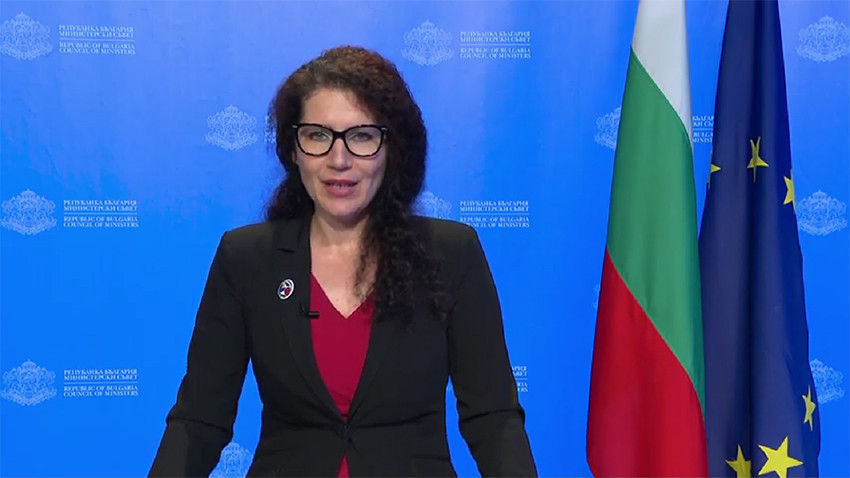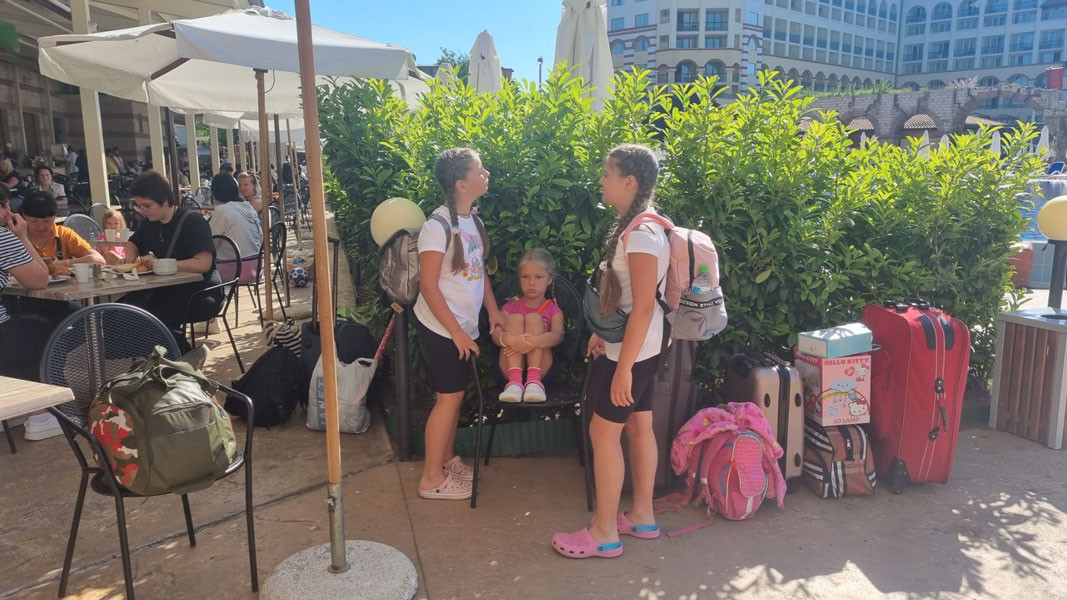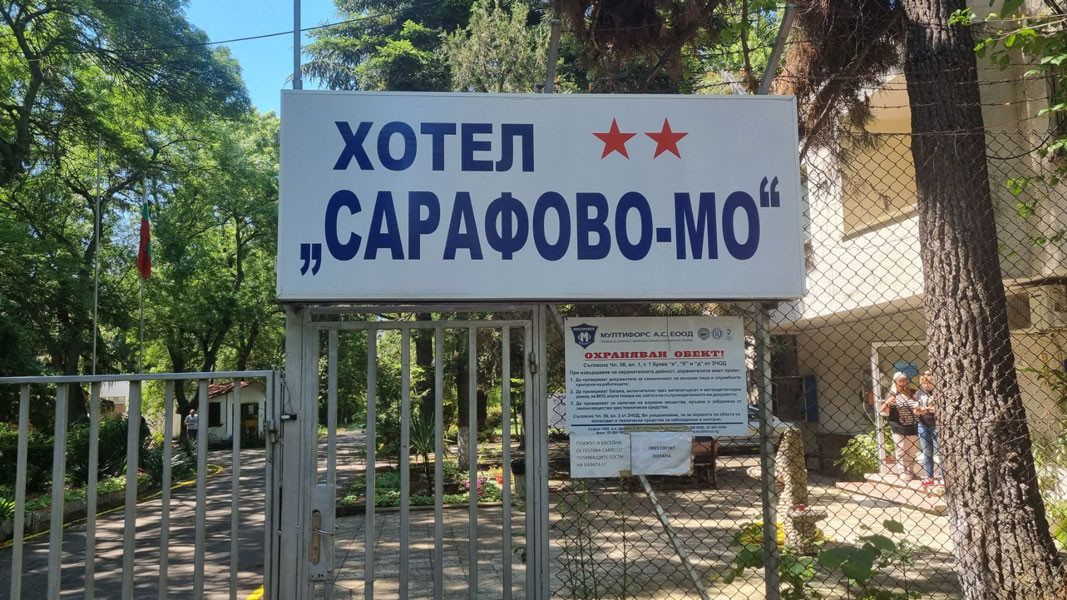Stress, chaos, fear of the unknown. Such were the feelings that predominated during the last hours before the Ukrainian refugees had to leave the seaside hotels where they had been put up. In a video address last night, Deputy Prime Minister for Good Governance Kalina Konstantinova announced that the government was scrapping the integration plan for the relocation of the refugees to the country’s interior due to insufficient interest. And that the refugees who had nowhere to go would be given temporarily accommodation in the trailers at the immigrant centres in Elhovo and Sarafovo until it became clear which of them want to be relocated to state-run facilities.
Kalina Konstantinova expressed disappointment with the multitude of "specific and personal requests that will definitely not be met”, and added that efforts will now be focused on the people who are vulnerable.

No healthcare, no pharmacies and grocery stores – these were the concerns voiced most often by the refugees fleeing the war in Ukraine who did not get on the trains that were supposed to take them to an uncertain future. And also - for security reasons the location of the facilities in the country’s interior where the refugees were supposed to be put up was not disclosed, causing further concern. For all of these reasons, only 5 of the 250 Ukrainians who had initially stated their wish to be relocated actually got on the train from Varna bound for Ribaritsa and Panichishte on Sunday.
On Monday, 78 Ukrainian refugees were transported from the city. At the same time, more than 5,000 refugees left Bulgaria in the space of just 24 hours. There are more than 40,000 Ukrainian citizens registered in this country. Of them, 7% are disabled, 3% are pregnant women, others suffer from chronic ailments.

Olga Terentieva from Odessa, mother of two, is one of the 78 refugees who were relocated from Varna yesterday:
“I believe that everything will be fine, and the children will be able to breathe some mountain air,” she says. “We were comfortable at our hotel, we felt at home. I am very grateful! Of course, we want to go home, but for now we will have to wait.”
According to Elena Ivanova, chair of the Union of Hoteliers in Sunny Beach, there is no problem with the Ukrainian citizens leaving the resort.
“Some of them have already left Sunny Beach in their own cars or by bus. The ones that remain are expected to be transported by Wednesday. In the Eastern zone of the resort the hotel operators have contracts with tour operators which they concluded last summer, that is why for them, the Ukrainian refugee programme cannot be continued. Some owners, mostly of apart complexes in the Western zone, have stated they want the people they have accommodated to remain under the new rules.”

Some of the relocated Ukrainians have not been provided food, said Olena Koceva, chairperson of the Ukrainian associations in Bulgaria. “They have been left to fend for themselves, if they have the money, or to rely on aid from centres like ours. Thank God we are not the only ones, and that is a good thing. The worst part is that there is no organization, nor is there any preliminary information.”

Despite fears that conditions will not be good enough, 25 Ukrainian families relocated from Burgas have already been put up at the facility belonging to Bulgarian State Railways in Panichishte, and have been provided with everything they need.
“They have three full meals a day, the facility is fully equipped to provide normal living conditions,” says Petko Alexandrov from the company’s press centre. “There is also staff employed there, the food is not catering, it is cooked on the spot. Everything is free – under the national refugee programme.”
The new humanitarian programme for accommodating persons with temporary protection status will provide 15 Leva per day (EUR 7.67) for accommodation plus three meals a day as of 1 June.

“We are aware that the programme will mostly include lower-rated types of accommodation such as family hotels and guest houses," Deputy Prime Minister Kalina Konstantinova said as the programme was unveiled.
Almost 500 hotels nationwide have stated they wish to provide accommodation to refugees from Ukraine.
Interviews by Horizont channel, Hristo Botev channel, Radio Varna and Radio Burgas, BNR
Compiled by Diana Tsankova
Photos: BGNESThe Association of Olympic Teams in Natural Sciences announced on Wednesday that Bulgarian high school students had won a gold, a silver and two bronze medals at the 32nd Balkan Olympiad in Informatics , which was held in Udine, Italy. The Bulgarian..
Applications can be submitted to the Bulgarian Cultural and Educational Centre in Scotland, First Bulgarian School "Nadejda Stancioff - Lady Muir” in Edinburgh for a new course for adults - Bulgarian for beginners. Classes start at 6-7 PM on..
Before leaving this world, Pope Francis chose "Migrants, missionaries of hope" to be the theme of this year's World Day of Migrants and Refugees, which the Catholic Church marks on 4-5 October 2025 . "With these words,..
Bulgaria's State Automobile Inspectorate (DAI) is the official body that deals with the control of heavy-duty traffic on the territory of the country, as..
Twelve beautiful young minds of Bulgaria were honoured by President Rumen Radev at a special ceremony, in which the annual John..

+359 2 9336 661
